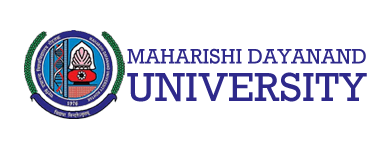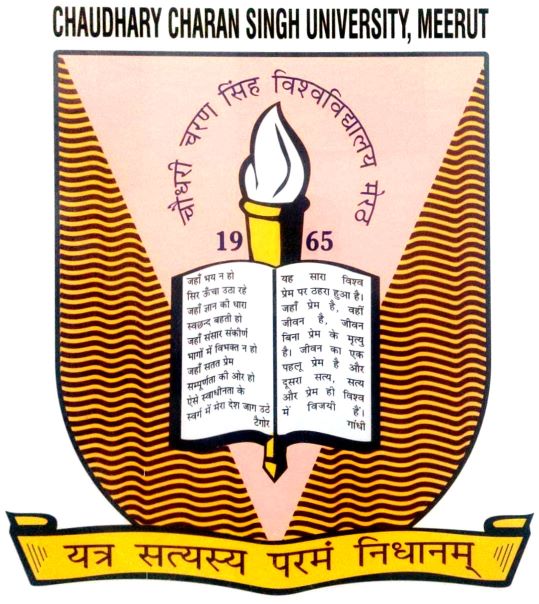Available Ph.d. Courses List and Admission Process
A PhD, or Doctor of Philosophy, is an advanced academic degree that typically involves extensive research in a specific field. It is the highest level of education one can achieve and often requires the completion of a dissertation or thesis based on original research. PhD programs vary by country and discipline, but they generally involve coursework, comprehensive exams, and a significant research contribution to the chosen field of study.
Ph.D. (Doctor of Philosophy) Courses:
Duration: Ph.D. programs typically last for 3 to 7 years, depending on the country, university, and field of study.
Entry Requirements:
- A master’s degree in a relevant field is often required, although some programs may admit students with only a bachelor’s degree.
- High academic achievement and research potential are crucial for admission.
Coursework: While Ph.D. programs are primarily research-focused, some may have a coursework component, especially in the early stages of the program. This coursework is designed to provide a strong foundation in the chosen field of study.
Comprehensive Exams: In many Ph.D. programs, students must pass comprehensive exams that test their knowledge of the field and their ability to synthesize and analyze information.
Research Proposal: Students typically develop and present a research proposal outlining the scope, objectives, and methodology of their intended research. This proposal is often subject to evaluation and approval by a committee.
Research Work: The core of a Ph.D. program involves original research. Students work on a significant research project, often leading to the completion of a dissertation or thesis.
Supervision: Ph.D. candidates work closely with a faculty advisor or supervisor who guides and supports their research.
Seminars and Conferences: Ph.D. students are often expected to participate in academic seminars, conferences, and workshops to present their work, gain feedback, and engage with the broader academic community.
Dissertation/Thesis: The culmination of a Ph.D. program is the completion and defense of a dissertation or thesis based on the student’s original research. This document contributes new knowledge to the field and is typically examined by a committee of experts.
Defense: After completing the dissertation, the student defends their research findings and methodology in front of a committee. A successful defense is a requirement for obtaining the Ph.D. degree.
Degree Conferment: Upon successful completion of all program requirements, including the dissertation defense, the candidate is awarded the Ph.D. degree.
Keep in mind that these details can vary across different institutions and countries, so it’s essential to check the specific requirements and structure of the Ph.D. program you are interested in.
Ph.D. Course Admission Eligibility Criteria
The eligibility criteria for a Ph.D. (Doctor of Philosophy) program can vary among universities and countries, but here are some common requirements:
Educational Qualifications:
- A Master’s degree in a relevant field is often a primary requirement. Some programs may accept students with an exceptional Bachelor’s degree, but this is less common.
- The Master’s degree should be obtained from a recognized university or educational institution.
Academic Performance:
- Candidates are usually required to have a strong academic record, often measured by a minimum grade point average (GPA) or equivalent.
Entrance Exam:
- Some universities and departments may require candidates to take a standardized entrance exam, such as the GRE (Graduate Record Examination) or subject-specific tests.
Research Proposal:
- Many Ph.D. programs require applicants to submit a research proposal outlining their intended research topic, objectives, and methodology. This helps assess the candidate’s research aptitude and fit with the program.
Letters of Recommendation:
- Applicants typically need to provide letters of recommendation from professors or professionals who can speak to their academic and research capabilities.
Interview:
- Some programs may conduct interviews with prospective Ph.D. candidates to assess their research interests, motivations, and overall suitability for the program.
Work Experience:
- While not always mandatory, some Ph.D. programs may prefer or require candidates to have relevant work experience in their field of study.
Language Proficiency:
- Proficiency in the language of instruction is crucial. For programs in English-speaking countries, this often involves providing evidence of English language proficiency through tests like the TOEFL or IELTS, especially for non-native English speakers.
Preparation in Specific Subjects:
- Depending on the field of study, candidates may be required to have a background in specific subjects or disciplines related to their intended research.
Meeting Specific Departmental Requirements:
- Each department within a university may have additional requirements or preferences. It’s essential to carefully review the specific eligibility criteria of the department to which you are applying.
Interview or Selection Process:
- Some programs may conduct interviews or have a selection process to evaluate candidates beyond their academic qualifications.
It’s crucial to check the specific eligibility criteria for the Ph.D. program you are interested in, as requirements can vary widely. Contacting the admissions office of the respective university or department can provide accurate and up-to-date information.
Ph.D. Courses Admission Fees in India
The Ph.D. course fees in India can vary significantly depending on the university, the specific department or school, and the chosen field of study. Additionally, fees may differ for Indian and international students. It’s important to note that the fee structure can change, so it’s advisable to check with the respective university for the most up-to-date information.
In general, some key points about Ph.D. course fees in India include:
Government/Public Universities:
- Ph.D. programs in government or public universities often have relatively lower tuition fees compared to private institutions.
- Government universities may also offer fellowships or stipends to Ph.D. students.
Private Universities:
- Private universities may have higher tuition fees for Ph.D. programs. The fees can vary widely depending on the university’s reputation and facilities.
Research Scholarships and Fellowships:
- Many Ph.D. students in India are eligible for various research scholarships and fellowships, either from government agencies or private organizations. These financial aids can cover tuition fees and provide a stipend for living expenses.
Registration and Examination Fees:
- In addition to tuition fees, there may be registration fees, examination fees, and other miscellaneous charges. These can vary depending on the university.
Duration-Based Fees:
- Some universities charge fees based on the duration of the Ph.D. program. Fees may be payable annually or semester-wise.
Hostel and Other Amenities:
- If you choose to stay in university accommodation (hostel), additional fees for accommodation, food, and other amenities may apply.
Fee Waivers:
- Some universities may offer fee waivers or discounts to economically disadvantaged students or those with exceptional academic records.
International Students:
- International students generally pay higher fees than Indian students. The fees for international students can vary widely between universities and are often higher in private institutions.
It’s essential to visit the official website of the university and the specific department offering the Ph.D. program to get accurate and up-to-date information on fees. Additionally, you may want to inquire about available scholarships, fellowships, or financial aid opportunities.
PhD in Art
A Ph.D. in Art is a doctoral-level program designed for individuals seeking to advance their expertise and make significant contributions to the field of art through original research and scholarly inquiry. This program typically combines rigorous academic study with hands-on artistic practice, allowing candidates to explore the theoretical and practical aspects of their chosen area within the broader realm of art.
Career Opportunities and Future Prospects:
- PhD Arts opens doors in academia and various industries, offering diverse career paths like Art Therapist, Researcher, Journalist, etc.
- Future prospects include setting up one’s boutique, working as an independent artist, or pursuing further studies.
This comprehensive guide provides insight into the structure, eligibility, admission process, and career prospects of pursuing a PhD in Arts.
PhD in Science
A Ph.D. in Science is a doctoral-level program designed for individuals aspiring to engage in advanced research and contribute significantly to the scientific community. This program provides an opportunity to explore in-depth scientific concepts, conduct original research, and make substantial contributions to the chosen field of science.
Admission Process for Ph.D in Science:
- Merit-based admission for some institutes.
- Entrance exams followed by interviews for others.
- Criteria include academic performance, exam scores, and research potential.
PhD in Engineering
A Ph.D. in Engineering is a doctoral-level program designed for individuals who seek to advance their expertise in engineering and make original contributions to the field through advanced research. This program combines rigorous academic study with practical, hands-on research to address complex engineering challenges.
PhD candidates are expected to contribute original work to the field of engineering, gaining skills applicable to academic and non-academic careers. Applicants don’t necessarily need a Master’s degree to apply for the PhD program; undergraduate degrees are acceptable, though certain criteria apply.
PhD in Language
A Ph.D. in Language is a doctoral-level programme designed for individuals seeking to deepen their understanding of language-related phenomena, engage in advanced research, and contribute significantly to the field of linguistics or language studies. Students delve deep into theoretical frameworks, conduct original research, and contribute to the understanding of language structures, semantics, syntax, and sociolinguistics. Areas of focus may include psycholinguistics, computational linguistics, historical linguistics, or applied linguistics. Graduates often pursue careers in academia, research, language technology, or language-related fields in industries like education, translation, and communication.
PhD in Life Science
A Ph.D. in Life Science is a doctoral-level program designed for individuals interested in advancing their knowledge and expertise in the field of life sciences. This program involves in-depth research, exploration of biological phenomena, and the generation of new knowledge to contribute to the understanding of living organisms.
Doctoral candidates typically conduct original research, contributing to scientific knowledge and often specializing in a specific area within life science, such as molecular biology or neuroscience. Completion of a Ph.D. in Life Science usually requires coursework, comprehensive exams, and the successful defense of a dissertation based on independent research. Graduates often pursue careers in academia, industry, government, or healthcare, where they may work as researchers, professors, consultants, or policymakers.
PhD in Management
A Ph.D. in Management is a doctoral-level program designed for individuals seeking advanced knowledge in the field of management, with a focus on original research contributions. This program aims to develop scholars who can critically analyze and contribute to the theoretical and practical aspects of management.
Students in this program delve deeply into subjects such as organizational behavior, strategic management, marketing, finance, and entrepreneurship. The goal is to produce scholars who can contribute original research to the field, often through dissertations on topics of their choice. Graduates of Ph.D. programs in management often pursue careers in academia as professors or researchers, or in high-level positions in the business world where advanced expertise in management is valued.
PhD in Mass Communication
A Ph.D. in Mass Communication is a doctoral-level program designed for individuals who aim to advance their understanding of communication theories, media practices, and the broader field of mass communication. This program emphasizes original research, critical analysis, and the development of scholars who can contribute significantly to the academic and professional discourse in the field.
Students pursuing a PhD in Mass Communication typically engage in rigorous research, critical analysis, and theoretical exploration to contribute new knowledge to the field. This program prepares students for careers in academia, research, policy-making, and media industries, offering opportunities to specialize in areas such as media effects, media psychology, media literacy, media policy, and media ethics.
PhD Other Fields
A Ph.D. (Doctor of Philosophy) in other fields outside of academia often involves advanced research and scholarship focused on a specific subject area. Unlike professional degrees like MD or JD, which are more geared towards specific career paths, a Ph.D. is typically research-oriented and prepares individuals for careers in academia, research, industry, or government. In fields such as engineering, computer science, social sciences, and humanities, a Ph.D. often involves conducting original research, publishing findings in scholarly journals, and possibly teaching undergraduate or graduate courses. The specific requirements and opportunities vary widely depending on the discipline and the goals of the individual pursuing the degree.
Live Application, Expert Guidance & Counseling for PhD Admission Process


















